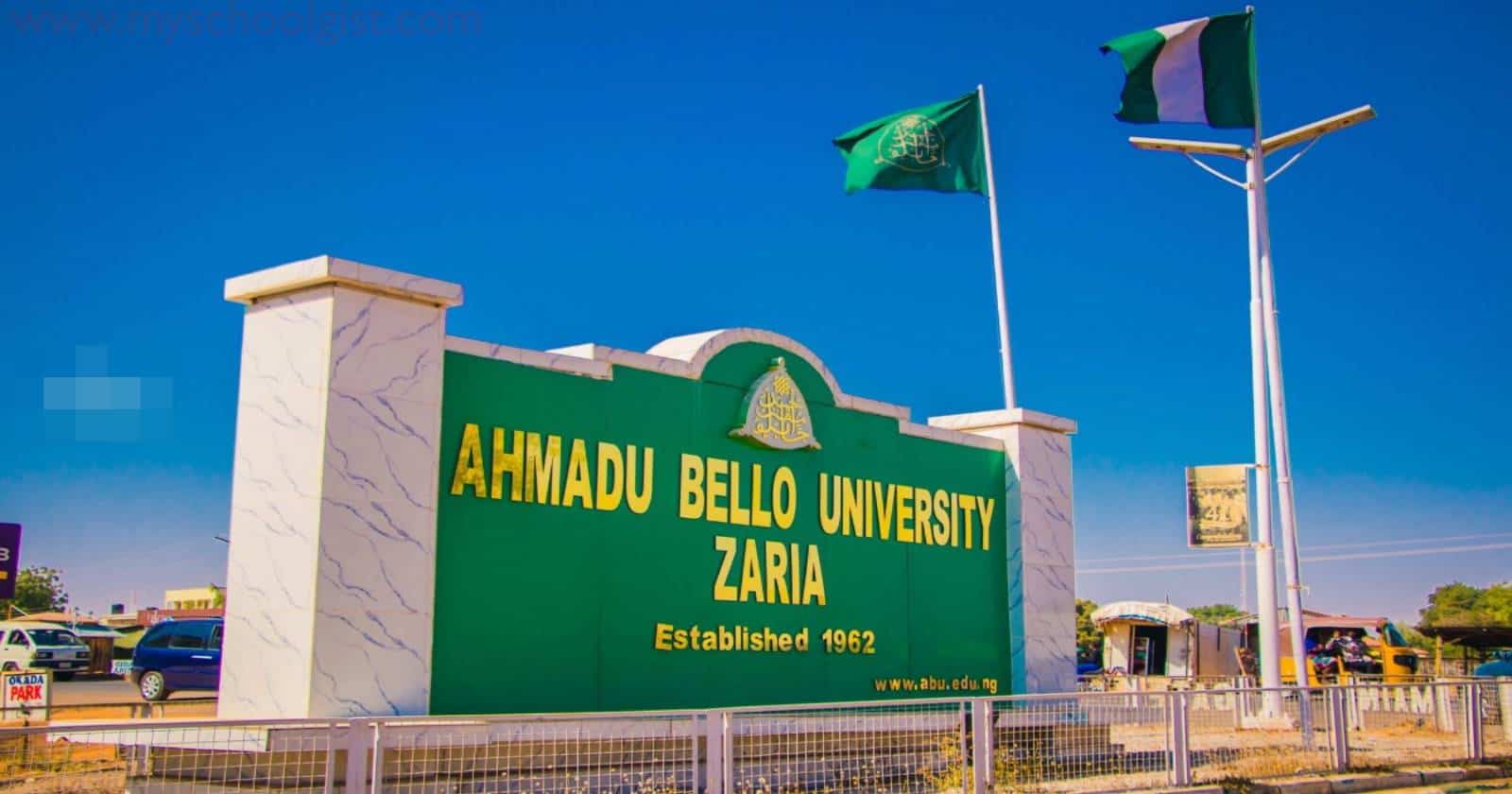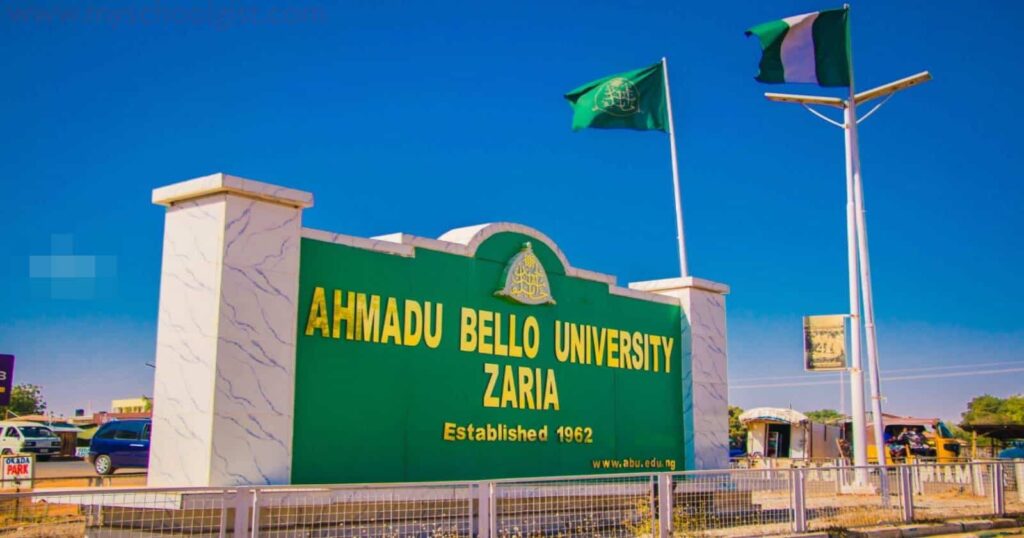Ahmadu Bello University, Zaria has scheduled the 2024/2025 matriculation ceremony for Tuesday, 25th February 2025. All fresh undergraduate students must attend, wear academic gowns, and take the matriculation oath. Continue reading for full details.

Ahmadu Bello University, Zaria has announced the date, time, and venue for the 2024/2025 matriculation ceremony.
Ceremony Details
- Date: Tuesday, 25th February 2025
- Time: 10:00 AM
- Venue: Mamman Kontagora Square, Main Campus, Samaru, Zaria
Attendance Requirement
All fresh undergraduate students must attend the event.
Students must be in full academic gowns during the ceremony.
The matriculation oath will be administered.
Procedure to Obtain Academic Gown
Students must pay N2,000 to hire an academic gown.
After payment, students should collect their gown and matriculation oath form from their Faculty Officers.
Steps to Make Payment via Remita
- Open a web browser and visit Remita.
- Click on Pay TSA & States.
- Select FGN: Federal Government of Nigeria.
- Type Ahmadu Bello University, Zaria – 1000110 under Who do you want to pay?
- Select COGCC under Name of Service/Purpose.
- Type Payment for Academic Gown Hiring in the description field.
- Enter N2,000 as the amount.
- Type full name, phone number, and email address.
- Check the I am not a robot box and follow the instructions.
- Click Submit and choose a payment method (card, bank transfer, USSD, bank account, bank branch, or internet banking).
- Present the Remita receipt for verification at the Cash Office.
Record of Attendance
Faculty Officers must record student attendance.
After the ceremony, officers must submit the attendance record and completed Matriculation Oath forms to the Academic Office for upload to student portals.
For further assistance, contact the Cash Office.
Conclusion: The State of Education in Nigeria
Education in Nigeria is a critical sector that holds the key to the nation’s development, yet it faces numerous challenges that hinder its potential to transform the country. Over the years, Nigeria has made significant strides in expanding access to education, particularly at the primary and secondary levels. The Universal Basic Education (UBE) program, launched in 1999, aimed to provide free and compulsory education for all children, reflecting the government’s commitment to improving literacy and educational outcomes. However, despite these efforts, the Nigerian education system continues to grapple with systemic issues that undermine its effectiveness and inclusivity.
One of the most pressing challenges is the inadequate funding of the education sector. Despite international recommendations that countries allocate at least 15-20% of their annual budget to education, Nigeria consistently falls short of this benchmark. This underfunding has led to a lack of infrastructure, insufficient teaching materials, and poorly equipped classrooms, particularly in rural areas. Many schools operate without basic facilities such as electricity, clean water, and functional laboratories, creating an unconducive learning environment. Additionally, the shortage of qualified teachers, coupled with low morale due to poor remuneration, has further exacerbated the quality of education.
Another significant issue is the disparity in access to education across different regions and demographics. Northern Nigeria, for instance, has some of the lowest literacy rates in the country, largely due to cultural and religious factors that discourage formal education, particularly for girls. Gender inequality remains a persistent problem, with millions of girls out of school due to early marriages, poverty, and societal norms. This disparity not only limits individual potential but also hampers national progress, as education is a powerful tool for empowering women and reducing poverty.
The quality of education is another area of concern. While enrollment rates have improved, the standard of education remains low, with many students unable to achieve basic literacy and numeracy skills. The curriculum is often criticized for being outdated and not aligned with the needs of the 21st-century economy. There is a growing demand for a shift towards skill-based and vocational education to equip students with practical skills that can address unemployment and drive economic growth. Furthermore, the frequent strikes by academic staff in tertiary institutions disrupt the academic calendar, leading to prolonged periods of inactivity and diminishing the value of degrees awarded by Nigerian universities.
Despite these challenges, there are reasons for optimism. The rise of private educational institutions and the increasing adoption of technology in education offer new opportunities for innovation and improvement. Online learning platforms, digital tools, and e-learning solutions have the potential to bridge the gap in access to quality education, especially in underserved areas. Additionally, the government and non-governmental organizations are increasingly collaborating to address issues such as girl-child education, teacher training, and infrastructure development.
In conclusion, while Nigeria’s education system faces significant obstacles, it also possesses immense potential for transformation. Addressing the challenges of funding, access, quality, and equity requires a concerted effort from all stakeholders, including the government, private sector, civil society, and international partners. By prioritizing education and implementing sustainable reforms, Nigeria can unlock the potential of its youth, foster economic growth, and secure a brighter future for generations to come. Education is not just a fundamental human right; it is the foundation upon which the nation’s progress and prosperity depend.


